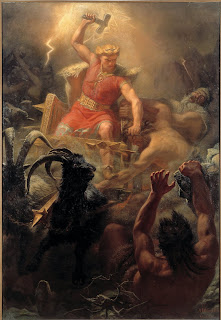Reading Notes: Aesop's Fables (Jacobs), Part A
Aesop's Lion by Wenceslas Hollar (Wikimedia)
Aesop’s Fables
Lions, Part 1-2:
- · Commented on it last week, but I know it’s something I would struggle with: beginnings are straightforward, can just state the facts as exposition.
- · Even though first fable, Lion’s Share is short, contains beginning, middle, and end.
- · Feels more like a setup to back/demonstrate a greater principle.
- · The sick lion is an interesting tale. Almost like intro leading up to a thesis
- · As someone who likes to talk, I don’t know if I could write this concisely, but I like how concentrated these stories feel. Very little filler
- You can tell these are tales that were at one point retained and passed down through word of mouth
- · The Four Oxen and the Lion – extremely concentrated, leanest story I’ve ever read.
- The Lion in Love is a bit of a sad story, not entirely sure what to make of the lesson but I like that kind of ambiguity in the message. Different people will take this to mean different things
Wolves:
-
These fables are a bit harsh but deliver important messages. Also how life’s hardest lessons are learned.· I like the poetry paired with the story, might be fun to take a crack at. Appears to follow AABBA rhyming scheme.· Wolf is an interesting character. While the lion represents monarchs/those with power/tyrants and can be anywhere along that spectrum, the wolf appears to be more on the evil side of power, simply by right of being stronger· Equally important to character development is characters paired with character, affects how reader frames character. Wolf attacking innocent lamb: wolf is tyrant taking what it wants. Wolf telling kid it is easy to be brave from a distance: doesn’t achieve that same negative valence.· The Dog and the Wolf – I really like this fable, I think this may be a good one to look at retelling and expanding upon. I like the comparison created between wolf and dog as free adventurer vs. someone who has settled.
- I like the Nurse and the Wolf as well, interesting frame of the wolf as not just evil.
*Apologies for these bullet points as Blogger does not want to cooperate today.
Bibliography
The Fables of Aesop, Joseph Jacobs




Comments
Post a Comment